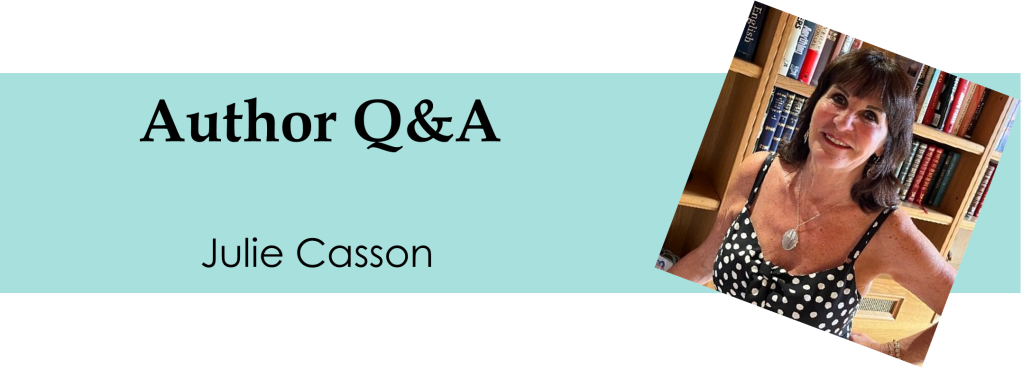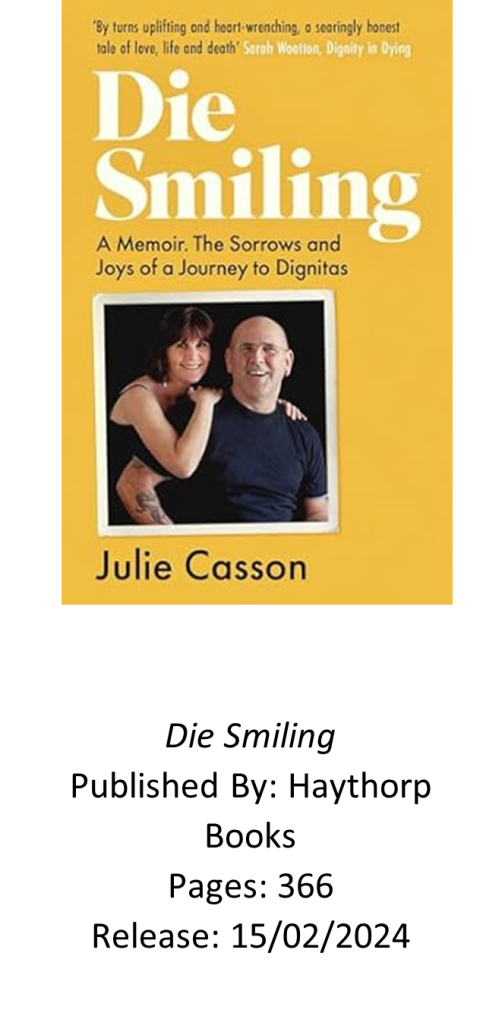
Sadly, I am a widow. But happily, I got to share forty-two fabulous years with Nigel – my funny, joyful, incomparable husband, soulmate and best-friend. I am mum to a charismatic son very much like his father and two delightful daughters, also very much like their father, with a tiny bit of me chucked into the pot. I am a proud grandma to two grandsons and two granddaughters, all vigorously forging very different pathways in pursuit of their own destiny. Finally, I am a ridiculously doting great grandma to a wonderful great-granddaughter, whose primary purpose in life is to sprinkle joy into the lives of all others. I live in the stunningly beautiful seaside town of Scarborough, North Yorkshire, with my beloved miniature schnauzer: Bodger. I say ‘my’ – he owns me, not the other way around.
I have always loved to write. When the grandkids were small, I would invent adventures where the grandkids played the heroes. I’ve penned several poems, mainly presented as framed gifts to mark special occasions in my family’s lives. I assume they like them as the words still grace their walls, even though one of them is hanging in the loo. Around thirty years ago, in the pre-digital age, I wrote a children’s book called The Land of Lost Money. The 90,000-word tome never got to do the rounds of publishers as I landed a full-time job at the local further education college and The Land of Lost Money got lost in a cupboard. I spent the next 23 years at the College, fulfilling various roles, evolving from teaching to a host of management posts. I hold a Teacher’s Certificate in Education and an MA in Management from the University of York.
My career ended unexpectedly in 2007, when my husband, Nigel, was diagnosed with motor neurone disease. I became his primary carer. Nigel’s positivity, irrepressible humour and pragmatism throughout his illness, and his determination to take control of his death, is the inspiration behind the memoir Die Smiling.
In 2011, I started a blog, searching for the humour in our every-day existence and detailing aspects Nigel’s experience, which later informed Die Smiling. I am a member of the Motor Neurone Disease Association and Dignity in Dying. It is my greatest wish that Nigel’s story contributes to changing the law on assisted dying in the UK.
The Land of Lost Money is no longer lost in the cupboard and is currently enjoying a thorough make-over.
Meet Julie Casson
Questions on Writing
What was the hardest bit about writing Die Smiling? Was it the memories or was it more to do with the actual writing process?
Die Smiling took about 3 years to write. It was an all-consuming, emotional, often frustrating undertaking – especially when I’d spend 8 hours at my laptop and produce nothing more than a single sentence! The hardest thing was sticking at it. There were also many positives. Shaping the events and memories of those ten years – many of which – especially Nigel’s appalling jokes – would come to me when walking Bodger – and building it page by page, chapter by chapter, was immensely rewarding. It was difficult to decide what memories to put in and what to leave out and how to make the scenes sing.
What have you learned about yourself when writing Die Smiling?
That I have staying power and determination to see things through. There were many times when I lacked confidence and was hugely self-critical of my writing. It would have been easy to give up, but I didn’t.
What does literary success look like to you?
Getting feedback from people who have read Die Smiling and they tell me they were deeply moved. That it made them laugh, made them cry and feel they came along on the journey with us. Also, how the book has been an enormous help to those who are going through similar things, and how it has given them much more insight into living with a terminal illness and the entire Dignitas process.
How did you go about the collaborative process that comes from writing a book about a real-life experience?
I asked people, specifically our children, about their memories. Which had the greatest impact on them. Much of the time I worked alone and used the blogs as inspiration and to help structure the memories.
Is writing something you would like to continue with, or was it just a one off?
Definitely will continue. I’m re-working The Land of Lost Money and will continue to post blogs through my new website.
How did you mark the book’s publication?
With a huge launch party at one of Scarborough’s best hotels. There were about 140 guests.
Questions on Books and About You
Firstly, the most important question, what books are currently ‘on your bedside table’?
Weyward by Emilia Hart; The Sister Under the Stairs by Steena Holmes; The Girl In Seat 2A by Diana Wilkinson; You Had Me At Hello by Mhairi McFarlane; No-One Saw a Thing by Andrea Mara; and The Silent Wife by Kerry Fisher.
What children’s book would you suggest every adult read?
Gulliver’s Travels by Jonathan Swift.
What does your writing space look like?
Extract from Die Smiling:
‘Nigel sits at the brown, buttoned leather office chair at the oak desk in the hallway, custom-made to accommodate the computer, printer and usual home study paraphernalia. We spend a lot of our time here in this practical, inviting space. Oak bookshelves store the compilations of hard-backed Reader’s Digest novels, accumulated since we were first married. There are several ‘how to’ books and popular fiction located amongst an imposing collection of battered old volumes of The War Illustrated: a couple of which once substituted for the broken leg of our first bed. Nigel’s golfing trophies, primarily clocks and glassware, are displayed between ornaments. On top of the shelves, a bust of Shakespeare dominates one end and Apollo, the other. In the centre is a cheerful sculpture of the three wise monkeys. On the wall behind the computer, providing moments of contemplation when your eyes stray from the screen, is a framed poem written by Nigel’s mum, Dorreen, to mark her fiftieth birthday. There is a studious photograph of me holding two intellectual tomes and wearing a borrowed cap and gown, along with a scholastic mood-inspiring print of a magnificent old book-lined library, complete with librarian standing atop a pulpit ladder, engrossed in the book held before his face, whilst clutching another between his knees and a third tucked beneath his arm.’
Oh … and it’s a bit dusty!
How many books do you think you own?
Approximately 300.
Who is your literary icon?
Jane Austen
If you could own one rare/1st edition copy of a book, which would it be?
Pride and Prejudice
Is there an author who you always read?
Jean Plaidy, Victoria Hislop, Jojo Moyes, Mhairi McFarlane, and Sophie Ranald.
Thank you Julie😊I adored reading Die Smiling, it was so moving, and I am very intrigued by The Land of Lost Money.
Julie Casson’s Books
